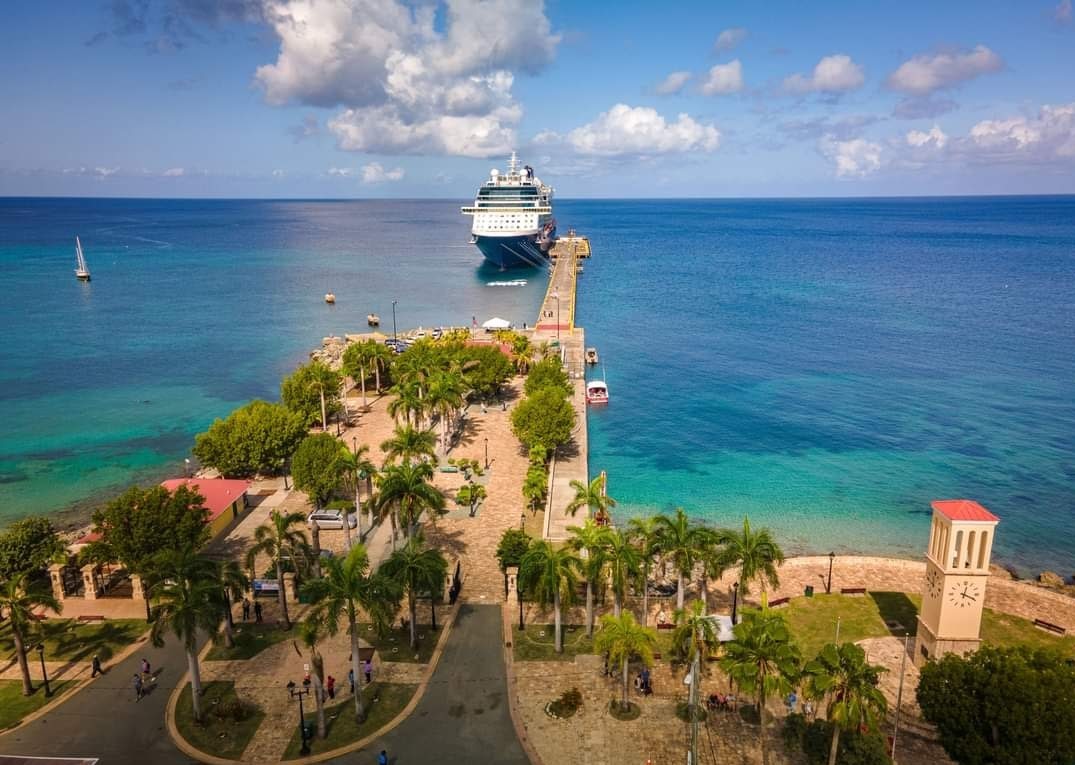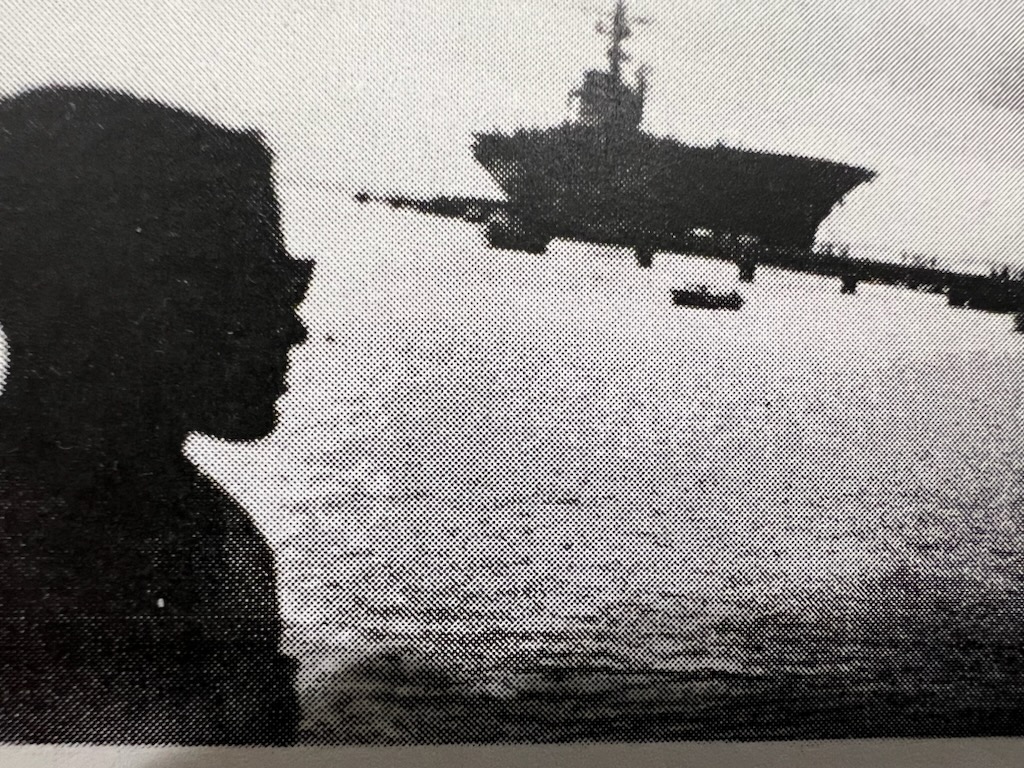Perhaps it’s a common human experience, as we age, to reminisce about the past and feel a profound sadness for what no longer exists. A few months ago, I drove through Frederiksted, and there, I had to pause, overcome by a strong torrent of emotion. I cried like a helpless, abandoned child. Yes, I’m a grown man, and though I’m not ashamed (perhaps just a little), I wept uncontrollably for a few minutes.
It wasn’t hunger or physical pain that brought tears to my eyes. I hadn’t been drinking, (Heck, I don’t imbibe!) and there was no job loss or romantic breakup. No recent family deaths weighed on my heart. Instead, it was the sight of a place—a place that once thrived, vibrant and alive—now reduced to remnants and decay. A place I cherished, where my mother, Doña Catalina Garay, and loving mothers like Mrs. Ann Abramson, Mrs. Bea Christiansen, Doña Ana Garcia, Doña Justina Parilla (Tia Tini), Catholic nuns, and many others raised me.
I sat in my car, parked near the Jacaranda Ice Cream Parlor, the same spot where I’d sat as a child, watching airplanes approach from afar and ships sail on the horizon. It was there that I gazed at the sky, the indigo ocean, and daydreamed of journeys beyond the visible horizon.
But Frederiksted, my town, has changed. What I see now is desolation. The ballpark is a pile of rubble, and the streets echo with emptiness; you could fire a cannonball from one end to the other without hitting anyone or anything. The once beautiful, vibrant buildings stand shuttered, unpainted, and crumbling. Fort Frederik, once bustling, now houses only an art display and a public restroom. The wharf, once bustling with cargo and military ships, lies silent.
It’s a melancholy realization—the passage of time, the fading echoes of laughter, and the ghosts of memories that linger. Frederiksted, a place that shaped me, now wears its scars openly, a testament to the repeated battering of hurricanes, poor economic and urban policy, lack of vision and changing times.

The story below is about my memories of Frederiksted.
During my childhood, my hometown, Frederiksted, was one of the busiest places on planet Earth. Well, at least to me, it was! Frederiksted was very alive, and things got even better on weekends. At that time, all the shopping, for instance, took place in town. Stores were abuzz on Fridays and Saturdays. There were no shopping malls anywhere on the island to suck out the life and business activity out of any of our towns. All kinds of people, rich, poor, doctors, teachers, business owners, nuns and government officials lived and mingled in town, and strolled up and down the streets as they ran errands, walked to the bakery, to the banks or to church, or to visit a family member
There were many thriving stores and other businesses, and these were mostly owned and operated by the English-speaking islanders and the Spanish-speaking migrants from Vieques. There were only a handful of businesses owned by US Mainlanders and a few remaining Danes on the island. In those days, there were no stores owned by Middle Eastern people—only a few friendly peddlers with strange accents went door to door selling stuff on credit out of their cardboard boxes and suitcases, and from the back of their cars. The vegetable and fish markets were usually crowded during early Saturday mornings with people buying their fresh veggies and provisions from farmers or buying freshly caught fish directly from the fishermen.
On Strand Street, just a few steps from the fish market, was the hospital with the usual commotion of ambulances coming and going, patients walking around in pajamas and hospital gowns, nurses and other medical personnel coming and going, and then there was the ever-present lady selling roasted peanuts and coconut candies, and the melee seekers straining their necks to find out what piece of juicy gossip they could glean. The game of baseball was a big deal in those times on the island and the sports rivalries between the East and the West, as we referred to our towns, were always intense, and infectious. On Saturdays and Sundays, you often saw families driving or briskly walking to get a good closeup spot or seat at the baseball park. Young men beaming with pride walked towards the park proudly wearing their freshly washed baseball uniforms as they hurried to the baseball park. During a game, as you waded through the crowd, all you had to say to start or join a conversation was to comment about the team you were rooting for or just make a sarcastic joke or laugh derisively while saying a few funny and provocative things about the losing team or mouthing a few non-flattering comments about the big-bellied umpire who made a tough call on your favorite player or team.
From one end of King Street, or any of the long straight streets in Frederiksted, you would see taxis, pickups, cattle trucks, and horse-drawn carts lined up and down the broad bustling streets. Candy and ice cream parlors, barbershops, rum shops, grocery stores and colmados, and cook shops were busy with customers drawn by the mouth-watering aroma of whatever was in the big kitchen pot. Bars and pool halls were blaring with pulsating calypso and Latin music as happy trash-talking men and women played dominoes or listened intently to the broadcast of the Yankees and Dodgers baseball games, and sometimes they just passed time–arguing loudly about sports and politics, and shot the breeze about anything eye-catching walking by–after working all week on their countryside farms, at the stone crusher, construction sites, and the sugarcane fields.
The Frederiksted pier, which we called “the Wharf,” was my favorite spot, especially in the morning or at sunset. The place was usually teeming with life as cargo ships unloaded huge crates and pallets of commercial goods and new cars and appliances. At the same time, US Navy and Marine ships anchored and thousands of smiling military personnel dressed in their neat white and Khaki uniforms happily disembarked and touched land for their well-earned R and R after their prolonged journeys at sea. It was a sort of frantic joy in those days to walk along the streets and hear the loud music coming from car radios, and the incessant tooting of car horns, the belly laughter and rapid chatter of happy people, and the lively commotion.

Our town was always alive as children walked and skipped along to their schools. Policemen regularly walked the streets and chatted with the kids, passersby, and store owners. The police station, the judicial courts, and the Public Works Department and other government agencies were in town. And even the ultimate destination—the graveyard was in town, and it provided a most unique and ghoulish place for teenagers to play hide and seek and drink their rum concoctions and hot beer stashed earlier in the day. That was my town, Frederiksted.
About Christiansted? Oh well. At my age, as a child, that mysterious place was on the other side of the moon. It was just too far to go, but I frequently heard the older boys bragging about going to the movies and having two or three pretty girlfriends in the East. I could not wait to get older.
Carmelo Rivera, who has deep roots on St. Croix, formerly worked at HOVENSA for Turner St. Croix Maintenance, Inc., a major contractor, as head of public affairs, HR, and labor relations. He is a former University of the Virgin Islands HR and Business Instructor, a former USVI Department of Labor commissioner and acting commissioner of DPNR. He served as president of the St. Croix Chamber of Commerce and as chairman of the Hospital and Health Facilities Corporation. He currently lives in Orlando, Florida, with his wife, Nilsa Belardo, and returns frequently to St. Croix, his childhood home where he was raised by his humble Vieques family.





